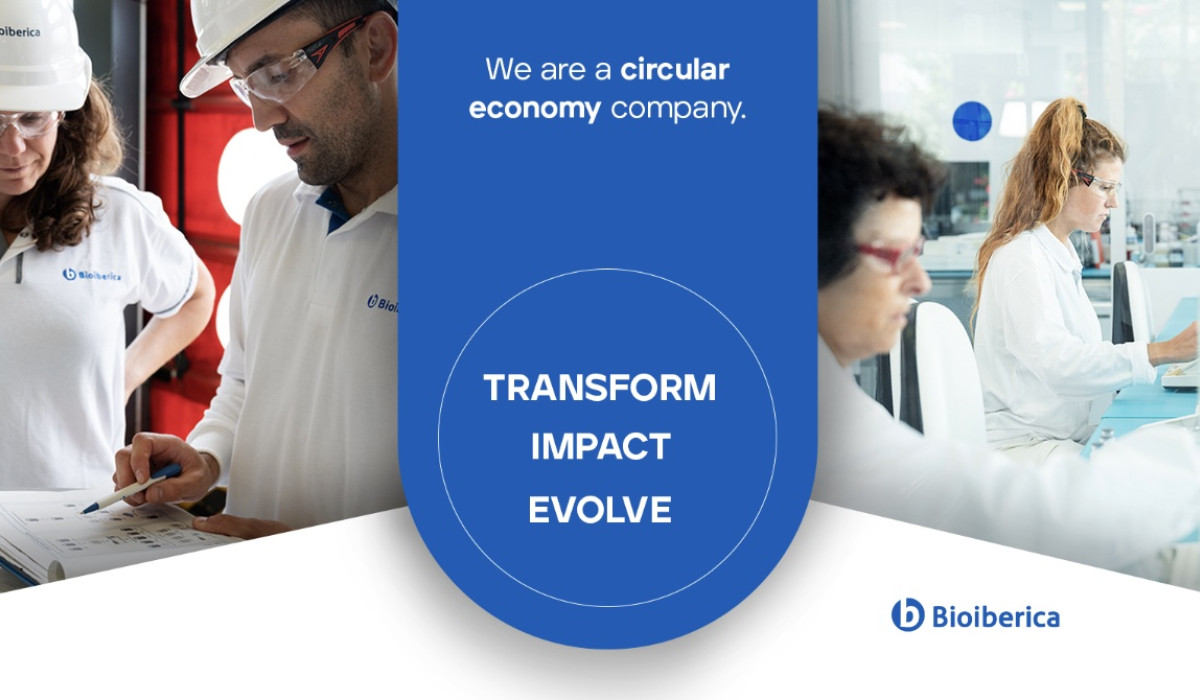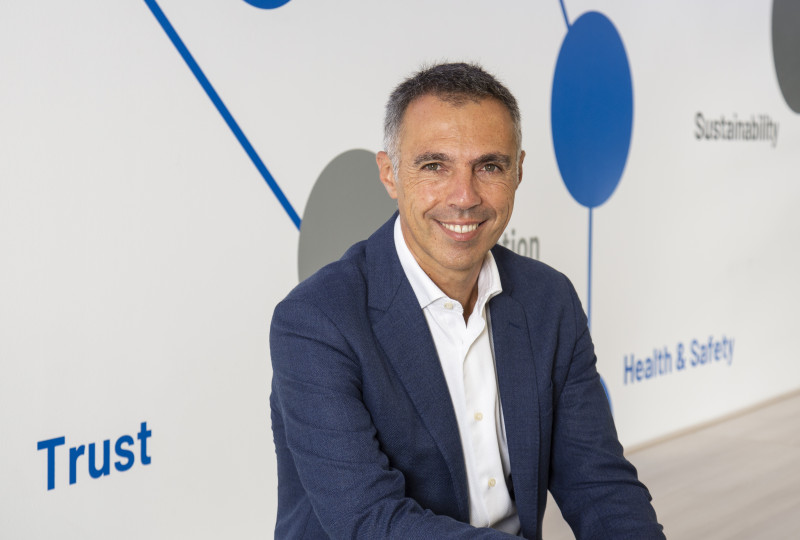The benefits of the circular economy
On a planet where natural resources are limited and there is increasing concern for the environment, the circular economy has emerged as an innovative and sustainable solution.

This new way of thinking about production and consumption focuses on reducing waste, conserving resources and promoting sustainability at all levels.
We have been pioneers in circular economy for more than 45 years
Did you know that in the European Union, it is estimated that the circular economy could reduce waste generation by more than 50% by 2030?¹
One of the cornerstones of the circular economy is minimising waste generation. In contrast to the linear economic model of “take, make, dispose”, the circular economy aims to keep products, materials and resources in use for as long as possible. This means that less waste is produced, the burden on landfills is reduced and valuable resources are conserved.
The circular economy also helps to significantly conserve scarce natural resources such as water, minerals and energy. By reducing the need to extract and process raw materials, pressure on ecosystems is reduced and valuable resources are conserved for future generations. For example, recycling materials such as aluminium and steel saves a significant amount of energy compared to production from virgin raw materials.
¹Source: https://www.europarl.europa.eu/
What are the environmental benefits?
A reduced carbon footprint is one of the key benefits, as less resources and energy are used in producing and transporting products. The emphasis on reuse and recycling also help to preserve biodiversity, and so reduces the need to destroy natural habitats to obtain resources.
Companies are challenged to create products that last for longer, are repairable and recyclable. This results in creating innovative products and technologies that promote sustainability and efficiency.
How we contribute to the circular economy within Bioiberica
To reduce our impact on the environment, at Bioiberica we firmly believe that we must address challenges such as waste reduction and the protection of natural resources. About 45% of greenhouse gas emissions originate from global land management and goods
production. Our planet currently needs one and a half years to regenerate the resources we consume in just one year.
This is why the circular economy principles guide us from our very foundations as a company and we aspire to be zero waste. These principles, which include optimising resources, reducing consumption and reusing waste, contribute to preserving the balance of the Earth’s natural resources and ensuring long-term sustainable growth.
Our mission is to minimise waste by researching, producing and marketing molecules of high biological and therapeutic value for the pharmaceutical, nutraceutical, veterinary, animal nutrition and agricultural industries. This approach is called the circular bioeconomy, and involves maximising the use of available biological resources and creating beneficial products.
In our efforts to ensure minimum consumption of raw materials, we have optimised our processes to use 100% renewable energy, reuse 20% of the water used in our industrial facilities (treated in our wastewater plant), and, finally, reduce the consumption of auxiliary raw materials through recovery systems.
Circular future
The circular economy is a transformational change in business models, going beyond the limitations of production and consumption to redefine the way companies perceive and use resources. This represents a shift away from the traditional linear model, embracing a broader perspective that values resource preservation, innovation and long-term thinking.
A focus on a circular economy requires companies to rethink their relationships with customers, suppliers and the wider community, according to Visual Capitalist. It is about creating systems that are also intrinsically designed to support the environment and society.
This approach promotes innovation, encouraging the development of new markets and opportunities that are in keeping with environmental protection.
Adopting the principles of a circular economy is a strategic business decision that can bring competitive advantage and resilience in a world where sustainability is becoming an imperative. It is about creating value in contributions to the health of the planet and the well-being of its inhabitants.
We firmly believe that the principles of sustainability, production efficiency, social equity and environmental responsibility guarantee continuity and propel us into the future.
If you want to know more about our unique circular economy model, visit here.
Related News
As Bioiberica celebrates its 50th anniversary, Luis Solera, CEO reflects on the company’s evolution—from a pioneer in heparin production to a global leader in the biotech industry.


